第23章
Dwellers by the sea cannot fail to be impressed by the sight of its ceaseless ebb and flow, and are apt, on the principles of that rude philosophy of sympathy and resemblance which here engages our attention, to trace a subtle relation, a secret harmony, between its tides and the life of man, of animals, and of plants. In the flowing tide they see not merely a symbol, but a cause of exuberance, of prosperity, and of life, while in the ebbing tide they discern a real agent as well as a melancholy emblem of failure, of weakness, and of death. The Breton peasant fancies that clover sown when the tide is coming in will grow well, but that if the plant be sown at low water or when the tide is going out, it will never reach maturity, and that the cows which feed on it will burst. His wife believes that the best butter is made when the tide has just turned and is beginning to flow, that milk which foams in the churn will go on foaming till the hour of high water is past, and that water drawn from the well or milk extracted from the cow while the tide is rising will boil up in the pot or saucepan and overflow into the fire.
According to some of the ancients, the skins of seals, even after they had been parted from their bodies, remained in secret sympathy with the sea, and were observed to ruffle when the tide was on the ebb. Another ancient belief, attributed to Aristotle, was that no creature can die except at ebb tide. The belief, if we can trust Pliny, was confirmed by experience, so far as regards human beings, on the coast of France. Philostratus also assures us that at Cadiz dying people never yielded up the ghost while the water was high. A like fancy still lingers in some parts of Europe. On the Cantabrian coast they think that persons who die of chronic or acute disease expire at the moment when the tide begins to recede. In Portugal, all along the coast of Wales, and on some parts of the coast of Brittany, a belief is said to prevail that people are born when the tide comes in, and die when it goes out. Dickens attests the existence of the same superstition in England. People can't die, along the coast, said Mr. Pegotty, except when the tide's pretty nigh out.
They can't be born, unless it's pretty nigh innot properly born till flood.
The belief that most deaths happen at ebb tide is said to be held along the east coast of England from Northumberland to Kent. Shakespeare must have been familiar with it, for he makes Falstaff die even just between twelve and one, e'en at the turning o' the tide. We meet the belief again on the Pacific coast of North America among the Haidas. Whenever a good Haida is about to die he sees a canoe manned by some of his dead friends, who come with the tide to bid him welcome to the spirit land. Come with us now, they say, for the tide is about to ebb and we must depart. At Port Stephens, in New South Wales, the natives always buried their dead at flood tide, never at ebb, lest the retiring water should bear the soul of the departed to some distant country.
To ensure a long life the Chinese have recourse to certain complicated charms, which concentrate in themselves the magical essence emanating, on homoeopathic principles, from times and seasons, from persons and from things.
The vehicles employed to transmit these happy influences are no other than grave-clothes. These are provided by many Chinese in their lifetime, and most people have them cut out and sewn by an unmarried girl or a very young woman, wisely calculating that, since such a person is likely to live a great many years to come, a part of her capacity to live long must surely pass into the clothes, and thus stave off for many years the time when they shall be put to their proper use. Further, the garments are made by preference in a year which has an intercalary month; for to the Chinese mind it seems plain that grave-clothes made in a year which is unusually long will possess the capacity of prolonging life in an unusually high degree. Amongst the clothes there is one robe in particular on which special pains have been lavished to imbue it with this priceless quality. It is a long silken gown of the deepest blue colour, with the word longevity embroidered all over it in thread of gold.
To present an aged parent with one of these costly and splendid mantles, known as longevity garments, is esteemed by the Chinese an act of filial piety and a delicate mark of attention. As the garment purports to prolong the life of its owner, he often wears it, especially on festive occasions, in order to allow the influence of longevity, created by the many golden letters with which it is bespangled, to work their full effect upon his person. On his birthday, above all, he hardly ever fails to don it, for in China common sense bids a man lay in a large stock of vital energy on his birthday, to be expended in the form of health and vigour during the rest of the year. Attired in the gorgeous pall, and absorbing its blessed influence at every pore, the happy owner receives complacently the congratulations of friends and relations, who warmly express their admiration of these magnificent cerements, and of the filial piety which prompted the children to bestow so beautiful and useful a present on the author of their being.